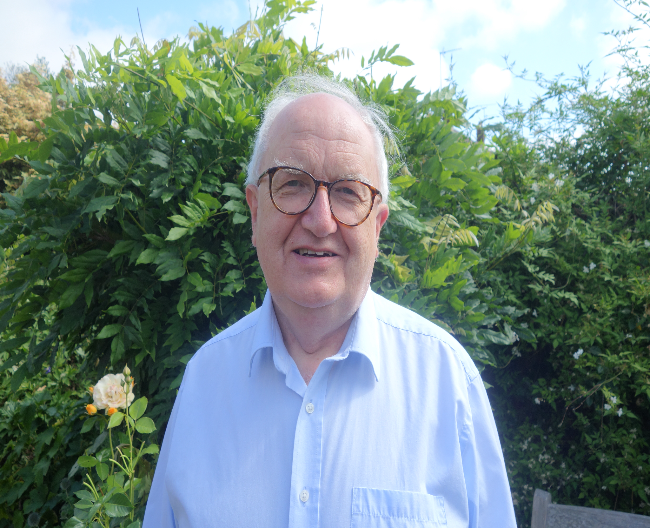Research Summary: Distinguishing Features of Long COVID Identified Through Immune Profiling
October 6th, 2022
A few weeks ago, a groundbreaking study published in medRxiv revealed how long COVID affects many aspects of the immune system. Mount Sinai Hospital in New York recruited 99 participants for the study. The average age of the group was 46.
Participants were divided into these groups:
- those living with long COVID for at least a year (the 99)
- plus comparison groups (controls) of those who had never had COVID
- those who had COVID but no lasting symptoms
- healthcare workers who hadn’t been vaccinated and had COVID but no ongoing symptoms
Since the study is complex and wide-ranging, I’ve broken it into a few short sections, including the main findings of the study and my suggestions for additional research and patient involvement.
Key symptoms of long COVID
This study resoundingly identifies a cluster of symptoms distinctive of long COVID, including:
- fatigue
- brain fog
- memory impairment
- confusion
Of course, these are familiar to anyone with the condition.
These features show a clear difference between people's experiences in the long COVID group vs. other groups in the study. Even more striking is that this cluster of symptoms matches abnormalities in immune function (we’ll discuss this further in the sections below).
In other words, long COVID has a specific set of clinical features that match a particular set of blood markers.
How long COVID can affect the mind
The mind doesn’t cause long COVID, but the above cluster of symptoms indicates that it does affect it. In this article, we’ll discuss the many things going on in a person's immune system with long COVID. These immune changes suggest the viruses are active in ways that directly affect the brain and the body, making them unable to function normally for anything but short periods of time
This study also looked at whether people with long COVID were more prone to anxiety and/or depression before they got sick, and they were not.
Long COVID and POTS
POTS stands for postural orthostatic tachycardia syndrome. When people living with POTS stand (or become orthostatic, in ancient Greek), their heart races, and it feels like they’re going to fall over (maybe they do). There is a clear history of this disabling disorder and ways of investigating what’s causing it.
Many people with long COVID present symptoms compatible with POTS because they have it, not because they’re pretending. This study suggests that 37% of people with long COVID have the syndrome, validated by appropriate testing.
Is long COVID a single condition?
In medicine research, people divide between “lumpers” and “splitters.” Lumpers like to see similarities and lump things together, and splitters do the opposite and revel in defining differences.
This study has something for lumpers and splitters. First, it shows that most people with long COVID have many symptoms and immune features in common, making the disease a single lump. On the other hand, the paper hints that it may be possible to split the long COVID into three separate bits (clusters or subgroups), though it doesn’t give much detail.
How long COVID exhausts immune cells
This study concentrated on the immune system of people with long COVID. The investigators set to identify an enemy by tracking what’s happening to the troops on our side.
Let’s begin with a type of white blood cell called a monocyte. Monocytes are the front-line troops. Long COVID is accompanied by an increase in several populations of monocytes. Some attack the enemy directly, while others scurry back to headquarters and alert high command, the immune system.
In the blood of people with long COVID, monocytes alert the B lymphocyte immune cells to produce antibodies to latch on to the enemy. However, the response is limited to specific cell populations.
T- lymphocytes, other immune cells, are like officers supervising the whole system, ensuring everyone has the right weapons and that they advance or fall back as necessary. Two important T lymphocytes classes, CD4 and CD8, appear to work themselves to exhaustion in people with long COVID.
Antibody production
The immune system works with a vast range of chemicals; some are simple and act on anything foreign that might attack the body, while others (antibodies) are more complex and bind to specific proteins on the enemy's surface. Vaccines work similarly
Antibody production is easy to follow in acute COVID when the virus produces a massive reaction in the entire immune system. It’s more challenging to understand what happens in long COVID but it seems to be caused by the virus outwitting the immune system. Long COVID is almost certainly caused by the SARS- CoV-2 virus persisting in the body.
Cortisol confusion
Quite distinct from the control groups, people with long COVID have too little cortisol in their blood, which might contribute to their fatigue and weakness symptoms. Having too little cortisol (a stress hormone), however, runs against common sense. People who are ill or stressed generally produce more cortisol, not less.
What’s going on and what should we be doing about it? Right now, we can’t answer those questions.
Autoantibodies in long COVID
The study's investigators put the participants' blood samples with long COVID through a system that scans for more than 6,000 antibodies against body proteins. They found no significant differences between the long COVID and control groups.
Previously, it seemed almost inevitable that some of the symptoms of long COVID were driven by antibodies turning against “self” (autoantibodies). It may also be that some symptoms in certain individuals may be linked to specific autoantibodies. But as a group, this study suggests that people with long COVID show no differences in autoantibodies from the control group.
We can say with certainty that there is no overall long COVID “signature” pattern of autoimmunity.
The link between long COVID and Epstein- Barr virus
In Britain, a disease called “glandular fever” affects young people when they’re taking important exams. It causes similar symptoms to long COVID, leaving them tired and lethargic for months. The official name of this disease is infectious mononucleosis.
In the United States, it’s typically referred to as “mono.” The Epstein-Barr virus (EBV) is the most common cause of mononucleosis. EBV is a herpesvirus that doesn’t yet have a specific treatment or vaccine, even though it may be the most important virus to lead to human disease. Not only does it cause infectious mononucleosis, but it also causes Burkitt lymphoma, and it may play a key role in multiple sclerosis (MS). It’s versatile and persistent and could even be instigating long COVID.
This study found that most people with long COVID have antibodies to EBV, but so did the control group. This is because we’re exposed to EBV from birth. However, the participants with long COVID had much higher antibody levels, suggesting that the virus is active and may be replicating somewhere inside them.
Finding a treatment to eliminate EBV could be the most critical outcome of long COVID research and cure mononucleosis, MS, and Burkitt lymphoma.
The gist
This study suggests all sorts of trails to lead to a deeper understanding of long COVID. Here are some personal suggestions for where the study might lead, both in clinical practice and research.
People seeking professional help for long COVID should be entered into some form of follow-up, both to track the course of the illness and to allow them to participate in treatment trials.
This study establishes a baseline for defining symptoms of long COVID and setting the appropriate tests, including:
- necessary testing if there are any symptoms suggestive of POTS
- cortisol measurement under standard conditions, with a possible further pituitary investigation
The findings of this study need to be replicated by others, and this is already happening. We need to know more about the subgroups this article suggests may be present within long COVID.
Studies of acute COVID show that after a week or so, a severe infection produces a huge range of potential autoantibodies. By contrast, this study shows that people with long COVID (whose initial condition was mostly mild-moderate) don’t have an excess of autoantibodies. We can understand this better by studying the changes in immune markers that occur right from the start of infection in an extensive follow-up study with all levels of severity.
I hope this study has given you optimism about the vigorous process and the quality of long COVID research. We could all do with some of that.
Article resources:
- Klein J, Wood J, Jaycox J, et al. Distinguishing features of Long COVID identified through immune profiling. medRxiv. Published online August 10, 2022:2022.08.09.22278592. DOI: 10.1101/2022.08.09.22278592
- About Epstein-Barr virus. (n.d.). CDC.
- Burkitt lymphoma. Lymphoma Research Foundation.

Richard Lehman
Richard is a retired family doctor who lives in the UK. Until 2020 he was Professor of the Shared Understanding of Medicine at the University of Birmingham UK. For 20 years he produced weekly summaries of research articles from the main medical journals. Here we are giving you his personal comments on Long Covid research as it appears in the medical press. They are meant as pointers rather than complete summaries. Readers wanting more detail are advised to use the links provided to the original article. Richard welcomes feedback from readers but regrets that he cannot provide medical advice.



